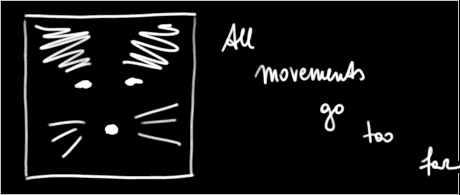Weathermen of knowledge
November 11th, 2006I have just attended a mini-conference on truth and knowledge, organized by Manfred Füllsack. Well, you know, it doesn’t take a bunch of acknowledged experts to make you know what you do not know, but then it certainly helps in some way or other.
You don’t need a weatherman
To know which way the wind blows
— Bob Dylan
In fact, I am still pondering over what I have actually been listening to. When someone articulates the need to distinguish tacit and articulated knowledge is this distinction nevertheless articulated, or is it meant to provoke the question which particular tacit knowledge it takes to draw the distinction?
Or, have I simply missed the speakers blink their Epimenidic eyes?
When Herbert Hrachovec compared the truth of knowledge with the expiry date of food might it be that the truth of his comparison had already expired at the time it has reached the audience? Thomas Auinger said this is not an issue of relativism. Quoting him: “Hier gibt es kein Relativierungsproblem.” Besides me wondering about what he was relating to, he might have been right about it if we consider the fact that the word “Relativierungsproblem” pretty much only came into existence when he used it. Or, was Herbert Hrachovec right when Thomas Auinger’s truth expired?
Of course, it’s all a question of definitions, isn’t it? (I love it!)
We have covered disfinism earlier here: The pure disfinism (of no definitions) and the eclectic disfinism (of a great many definitions). I should further extend the concept of disfinism by implicit disfinism.
Implicit disfinism is the science (or art — if you want — unless you define it) of discussing theories which try to explain the nature and scope of specific notions by use of the notions themselves without ever defining them. The little conference serves as a particularly nice example where several theories of epistemology (that’s theories of theories of knowledge) have been debated including plenty of references to truth and knowledge, shamelessly avoiding their definitions.
Thanks, guys!


